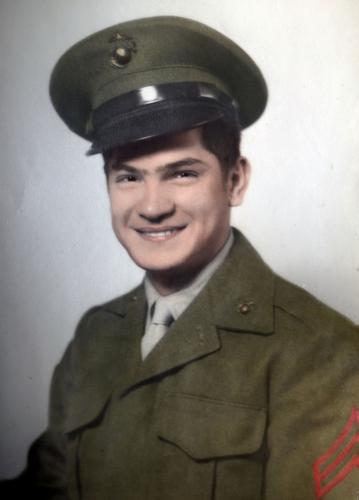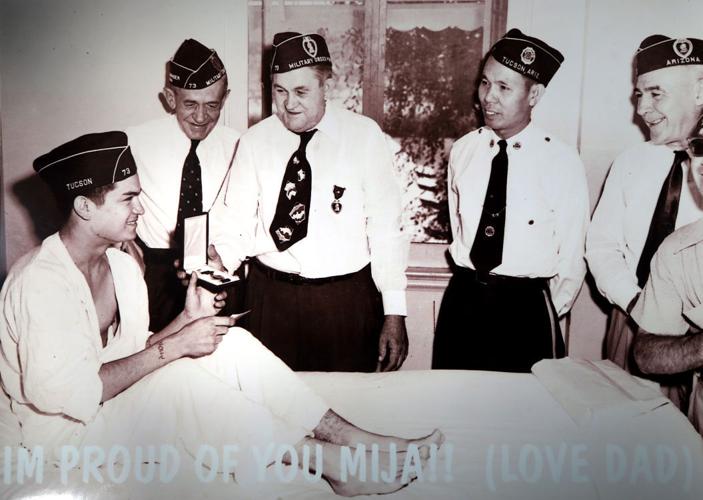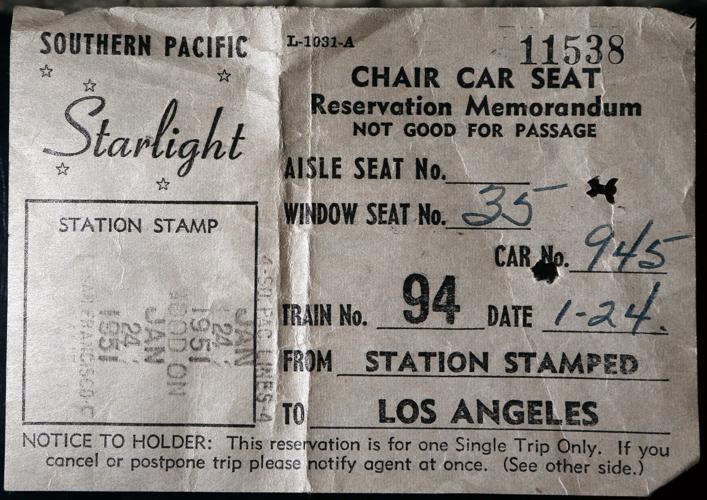Little did a young kid from the Old Pascua Yaqui Village imagine he would change the lives of Korean War veterans returning home. But David Arellano did.
It happened in 1951 when the 21-year-old veteran was seeking medical care at Tucson’s then-Veterans Hospital for a tumor on his neck. Administrators refused him the surgery he needed and sent him to the old Pima County Hospital for the poor, several blocks away.
It could not be done, said authorities, because under the law the Korean conflict was not classified as an “official” war, recalled Lorraine Arvizu, Arellano’s daughter, who sat next to her father in the living room of her spacious west-side home.
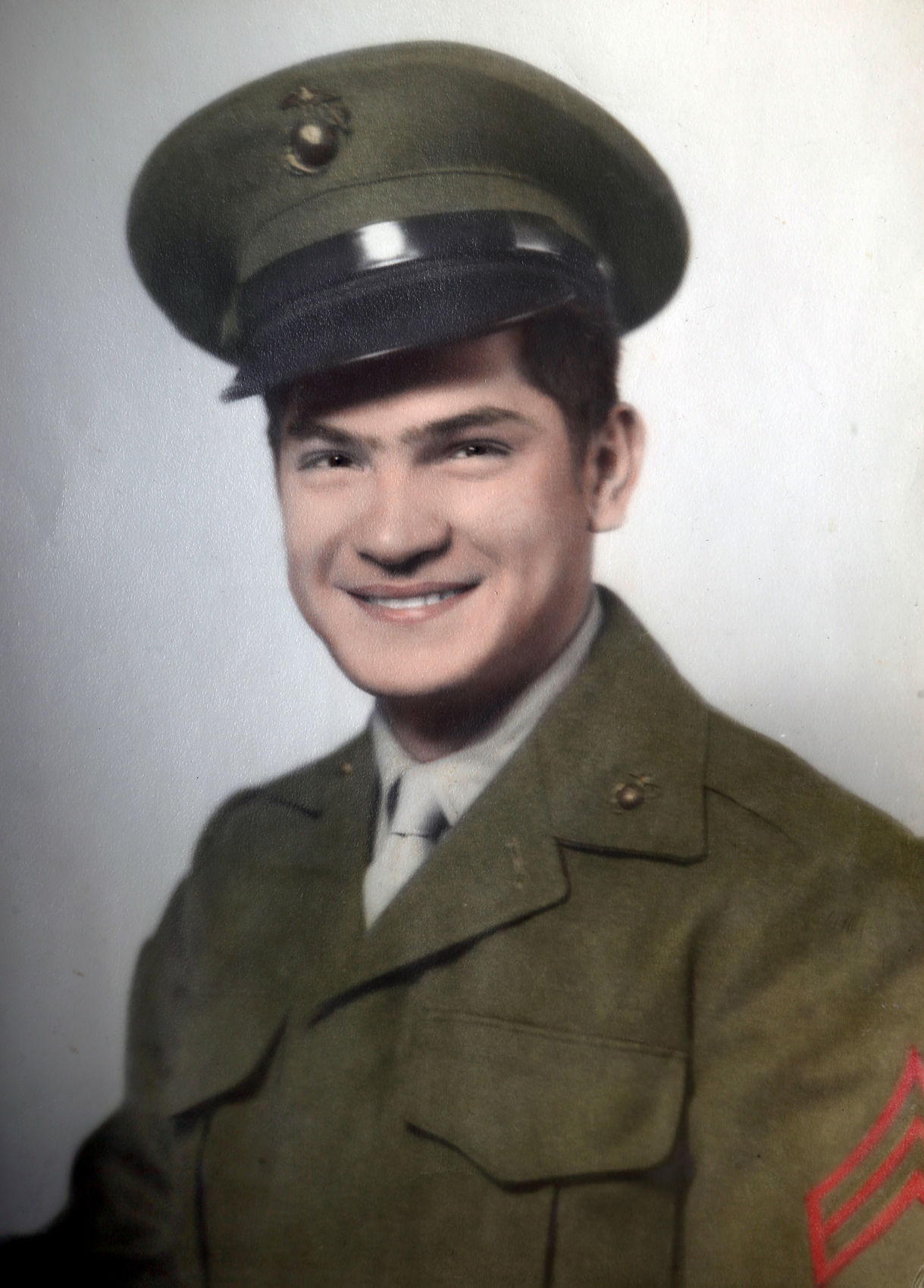 |
Arvizu pulled out a copy of a newspaper clipping telling his story that was among Arellano’s mementos, including his Purple Heart, his uniform and a train ticket after his discharge as a corporal from the Marines.
Lovingly, Arvizu pulled out a postcard her father wrote to her mother. “Remember dad. It is a love letter,” she said tenderly. Arellano, 86, who retired as an electric motor repairman, reached for the card, holding it.
The two then recalled the young Arellano’s medical journey and how he helped write history. Once he was turned down for surgery at the veterans hospital, he was sent to the county hospital, where it was performed. When the incident hit the newspapers — veterans, politicians and military families across the nation were outraged — backing Arellano’s plight to be treated as a military veteran.
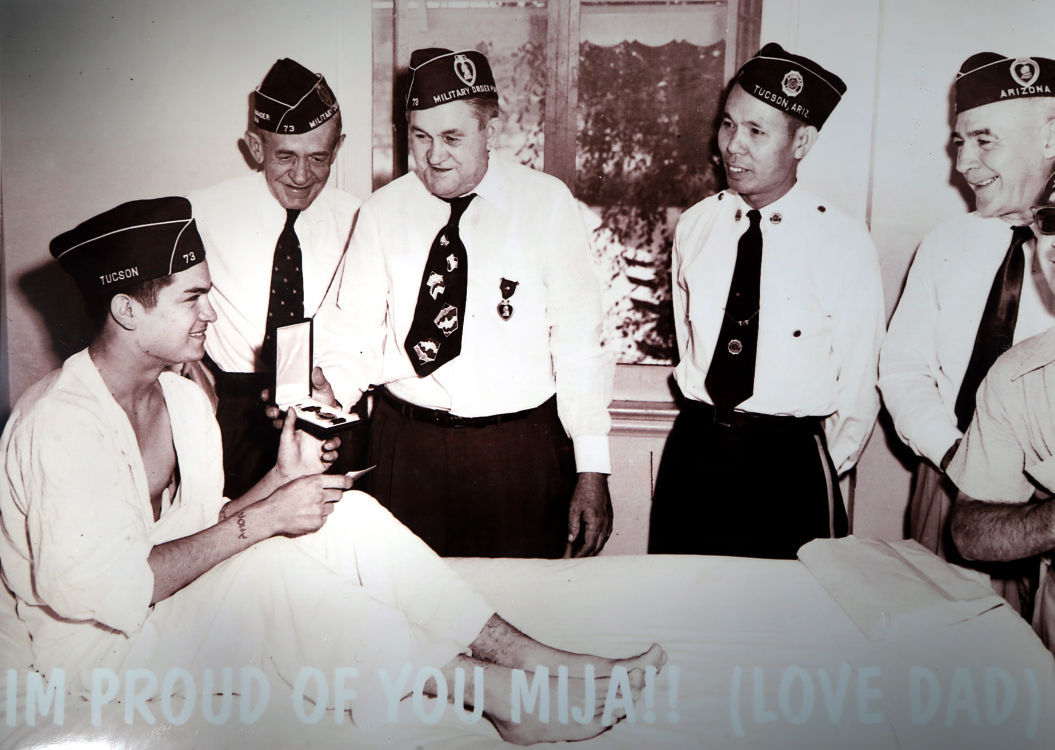 |
Even President Harry Truman backed Arellano, who, at age 20, was a Marine in E Company, 1st Marine Division, serving as a bazooka squad member. He survived numerous close calls on the battlefield — something still hard to talk about to this day.
“I saw a lot of men die, a lot of men hurt, a lot of men cry,” said Arellano of the combat.
He recalled a near-death incident where a captain came and told Arellano he wanted his foxhole. Once Arellano was settled in another foxhole, a bomb hit the foxhole the captain was occupying. “It wasn’t my time,” he said.
 |
Fighting at the front for almost five months, Arellano experienced another close call when he was in a truck taking supplies to the besieged 3rd Marine Battalion, according to a newspaper clipping. North Korean soldiers ambushed the truck on a hill, and when the driver maneuvered the truck off the narrow road it rolled. Arellano and 14 other Marines were trapped under the truck. Eventually Arellano was rescued and taken to the hospital ship where he recuperated.
Back home, President Truman and Congress agreed once they learned about Arellano being denied medical treatment that the law had to change to include benefits for Korean War veterans. Truman swiftly signed a bill into law that extended benefits to Korean War veterans.



